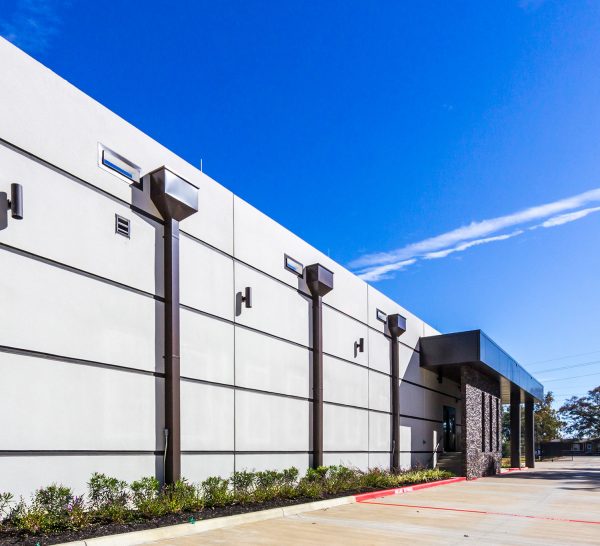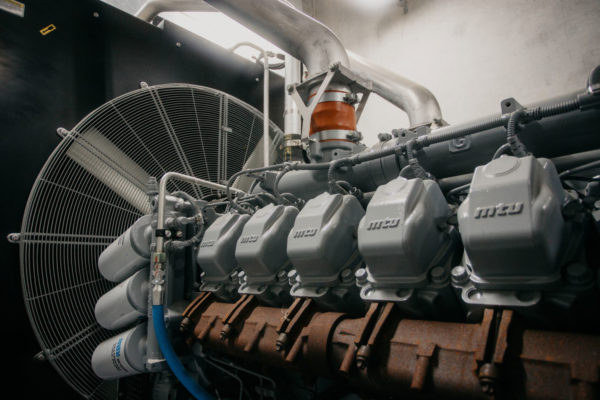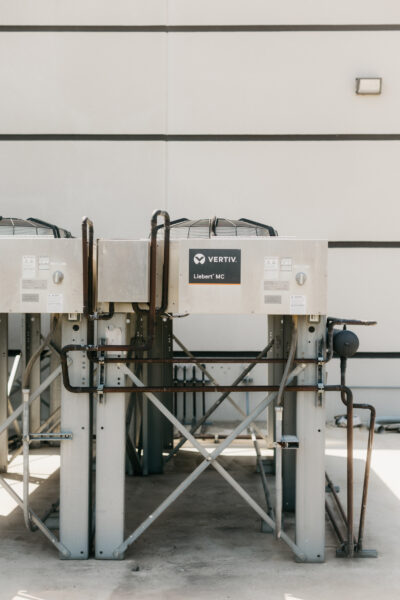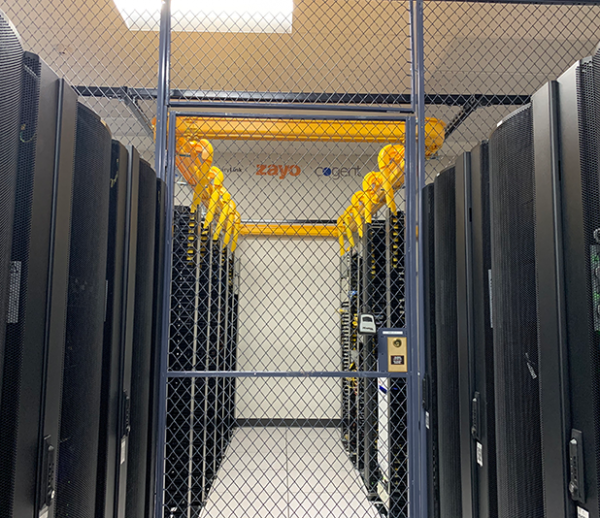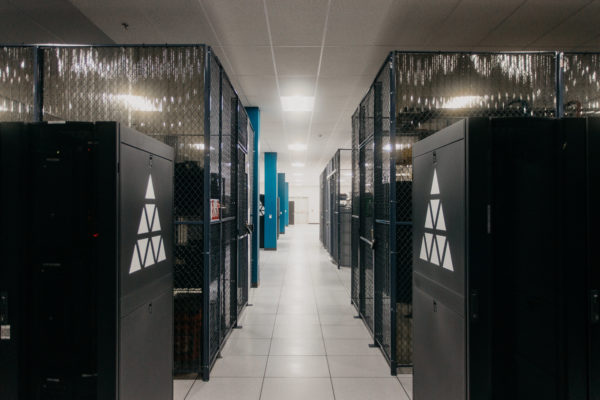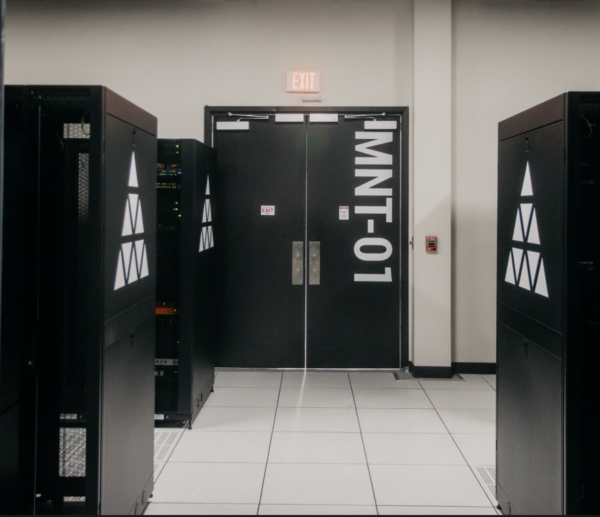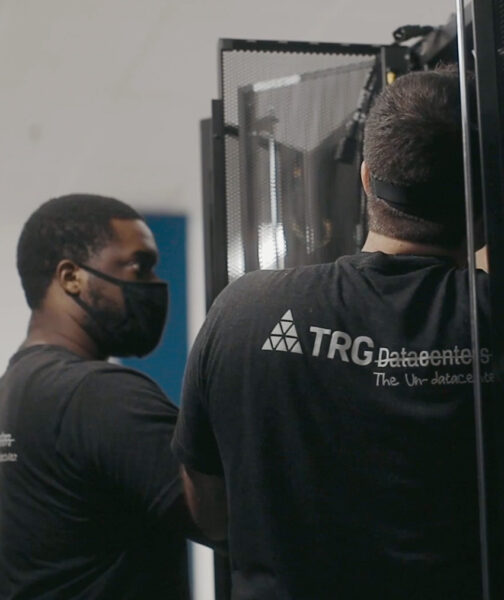Does your business need space for servers, storage, and networking? If so, renting space at a colocation data center can be a great option.
Before you take that leap, it’s vital that you understand colocation pricing, as well as the services and support that you’ll receive from your provider.
With that in mind, let’s dive into data center colocation pricing, how it works, and what factors impact out-of-pocket costs.
What is Colocation Pricing?
Colocation pricing refers to the cost associated with renting space for data center equipment.
Unlike traditional hosting, colocation providers give businesses the physical space, power, cooling, and security necessary to house their equipment. Colocation centers also offer connectivity to various network service providers.
Traditionally, you would have two options when building out data center infrastructure. The first and most cost-prohibitive approach involves hosting it in your own facility, setting up the data center, and taking on all of the expenses that come along with it.
The other common approach is managed hosting. Many businesses enjoy the convenience of this approach, as the provider oversees everything. You lease the servers and other equipment while they handle the tedious back-end administrative processes. Naturally, pricing for managed hosting is higher than colocation hosting pricing.
A similar approach would be to use cloud providers, but this carries many of the same disadvantages.
With a colocation, you own the servers and other core hardware. The provider offers network connectivity, cooling and power systems, and other support infrastructure. Your fees are lower, but your initial equipment costs are higher. The perk is that you maintain total control over critical equipment.
Colocation also provides businesses with access to the advantages that economies of scale can provide. Using these data centers can mean companies have access to better availability of power, as well as operational excellence and a matured build process.
Colocation Hosting Pricing
Colocation hosting pricing is influenced by several factors, including the following:
- Required rack space and square footage
- Power consumption
- Location
- Bandwidth needs
- Whether the provider offers add-on services
Prices can range from a few hundred to thousands of dollars per month, the biggest variable being your space needs. Renting a single rack will cost less than leasing an entire server room.
How Does Colocation Pricing Work?
Typically, colocation providers charge a monthly fee based on the rack space that your equipment occupies. If they offer any bonus services, such as disaster recovery, these add-ons will be factored into your monthly price. The fee also includes basic power and cooling requirements.
However, your pricing can be higher if you consume extra power or use more bandwidth than anticipated. Generally, providers will charge you every month and lock rates for a year. There are exceptions, but month-to-month terms are quite rare.
The location of a data center has a real impact on pricing. This is largely down to discrepancies in cost of things like energy, labor and real estate. Colocation in San Francisco, for example, is far more expensive than the same service in Texas.
The age of a data center can also impact the price on offer. Older data centers, such as those between 10-20 years old, typically command lower prices. And that’s because they come with a higher risk of failure.
Modern facilities are built to withstand environmental factors. Many are now built with the effects of climate change in mind, for example. They can therefore provide a higher level of performance and reliability.
Older data centers often struggle to compete with this. They’re also far more reliant on older equipment – much of which will likely be heading towards the end of its life. Colocation prices will therefore be cheaper, but the risk of failure is higher.
While colocation services are meant to alleviate high IT costs, you shouldn’t necessarily chase down the lowest price.
Instead, consider how much bang you’re getting for your buck. If one provider is a bit more costly but offers disaster recovery and data backup, they are likely the better option.
Be aware of hidden fees
Colocation pricing can vary quite significantly between providers, but what those arrangements include can also differ by quite some margin. One thing you’ll need to be aware of is the prospect of hidden fees, particularly if you’re looking at a colocation price that seems too good to be true.
Typical hidden fees that businesses might come up against early on include power rate adjustments and annual escalations, with fees for things like property tax rate pass-throughs and service surcharges.
Cross connect fees can ramp up charges by a considerable amount. Bear in mind that some providers can charge anywhere between $100-$400 per cross connect. You could be paying $1,000 per rack, but if you need three cross connects the price of these can easily top what you’ve paid for the rack. To avoid situations like these, it’s often worth investing in a colocation option that includes cross connects as standard.
Remote hands-on options can also come at a cost, so check whether these are included in your monthly fee before you sign on the dotted line.
What to look out for in your master services agreement
The length of the master services agreement being offered should be considered before anything is agreed. Think about this as complexity, and weigh up your options accordingly. You’ll want to think about how easy or difficult it might be to do business with the provider in question, and what their service level agreement really looks like.
There’s no right or wrong answer here, because it really depends on what the service being provided is actually worth to your business. Some businesses can cope with a slightly lower level of reliability, and will do well with that considering the cost savings that such a compromise might bring. In other cases, a drop in reliability wouldn’t be worth the cost saving to the company, and therefore there’s better value in a higher SLA.
Purchasing models
There are two common purchasing models to be aware of: dollar per square foot/amp, and all-in dollar per KW prices. In the first scenario, you’ll be paying for each rack, and you’ll get control over the power in those racks. With an all-in price, you have less flexibility but you’ll also know exactly what you’ll be paying from the start.
Do Colocation Prices Vary Across Data Centers?
Colocation prices can significantly vary across data center providers. The same provider may have different prices among their centers due to location-based cost variances.
The tier rating of a data center is another factor that impacts pricing. This rating indicates the level of redundancy and reliability the provider promises.
Generally speaking, lower-tier data centers in rural areas have lower colocation prices than those in metropolitan areas. Still, there may be benefits to having a center located in a large city.
Most notably, accessing the facility, setting up and maintaining equipment, and connecting with the provider will be easier.
Role of Level Agreements in Colocation Pricing
Service level agreements (SLAs) guarantee the quality of support and services you’ll receive from the provider. Typically, the agreement will address reliability, service uptime, performance, and other offerings like disaster recovery or bandwidth.
Once you enter into an agreement, the provider is obligated to uphold their guarantees. Many providers will include clauses that allow you to terminate the contract if they consistently fail to honor their guarantees.
That said, these promises come at an expense. The more promises a provider makes, the higher your costs will be. Maintaining a higher-tier facility and guaranteeing exceptional uptime requires resources and personnel.
Therefore, you should always read every line of agreements before committing to a provider. Pay special attention to pricing, contract length, and add-on fees that could impact your bottom line.
Typically, the colocation price is locked in for the length of the agreement, but some providers may have extra fees.
Additionally, consider what level of reliability and uptime you require. While you don’t want to partner with an unreliable provider, choosing a tier consistent with your needs is a great way to keep costs in check.
For instance, if your business needs a Tier I data center, entering a colocation agreement with a Tier IV facility can be wasteful.
Components in Colocation Pricing Agreements
Typically, coalition pricing agreements will include the following provisions:
- Space Rental: Outlines how much space you are leasing and what it costs
- Power Usage: Lists your base power usage allowance and fees for overconsumption
- Bandwidth: Internet connectivity and data transfer rates
- Additional Services: Extra services like tech support, enhanced security, or disaster recovery
- Tier: The facility’s tier, implying the power and service level you can expect
Pay particular attention to overconsumption fee schedules and data transfer rates.
Many times, it’s better to pay a little more upfront to increase your power and bandwidth allowance rather than incur overage fees.
Considerations to Make for Colocation Pricing
Colocation services are meant to be a cost-saving move. The question is, what will it actually cost you to lease space in a colocation facility?
There are no easy answers, as many different factors influence your costs, including the following:
Location
Before you dive into any other details, consider where you want your data center to be located. The location of a data center can significantly impact pricing. However, you want the facility to be close to your business for easy access.
For instance, a Houston colocation center will probably have lower rates than a facility located in downtown New York. If your company is headquartered in Texas, the Houston location can be a great option.
On the other hand, if you are located in New York City, it may be worth paying the premium location price — even if your business is smaller.
That said, there are workarounds. If you partner with a provider who offers both colocation and managed hosting services, they could help with the initial setup and then transition into a colocation role.
You’d still own the hardware and be able to unlock location-based savings.
Space
Next, determine how much space your hardware requires. Colocation space is often sold in rack units, half or full cabinets, or private cages. Of course, more space means higher costs.
However, many providers offer volume-based discounts, so ask about various pricing options and look beyond your current needs. For example, a half rack might hold 21 servers, whereas a full rack can hold up to 42.
If your business currently needs 20 servers and is preparing for an expansion, it would be wise to lease an entire rack. You’re going to need that extra space sooner rather than later.
Hardware
The type and amount of hardware you need can greatly influence your costs. High-density serves may require more power and cooling, driving up your fees.
So, when obtaining quotes, talk to providers about your equipment. Give them a comprehensive list of the hardware you want to install at the facility so they can provide accurate colocation pricing estimates.
The amount and complexity of hardware you install could also influence the cost of other services. For instance, if you install 42 servers, the cost of backup and recovery services will likely be higher than working with 21 servers.
Power
Power consumption is a critical driver of colocation price, so understand your equipment’s power requirements and how the data center charges for power usage. Some providers charge per kilowatt hour (kWh), while others build a baseline of usage into your fee.
The per kWh approach will lead to fluctuating monthly costs. However, it also means you aren’t paying for power you don’t use.
When the provider builds power consumption into your fee, your monthly expenses will be stable. There is an exception: If you go over your allotted kWhs, you’ll be charged overage fees, which can be extremely high.
One of the biggest mistakes we see is companies purchasing more power than they really need. Right sizing your capacity is vital; it can save you 30-40% in contract fees.
Don’t forget you can ask your provider for help when it comes to determining power requirements. A reputable provider will assist you here; some will even offer a right size guarantee.
At TRG, we offer a settling period, during which power requirements can be adjusted, and contracts can be fixed. This takes the guesswork out of planning your colocation, and ensures that our customers never pay more than they need to.
Connectivity
Some data centers offer multiple connectivity options and speeds. If your provider has connectivity options, consider several packages to determine the most cost-effective and practical approach.
While you may not need the highest speed available, don’t sell yourself short, as doing so could impact performance.
Premium connectivity services can be exceptionally expensive, especially in metropolitan areas. Also, remember that you will typically be locked into the connectivity level you choose for the duration of the contract.
Most providers will let you increase your connectivity level but not drop it during the lease period.
Bandwidth
Not to be confused with latency, bandwidth refers to the transfer speed of your data. The higher your bandwidth, the faster you can send and receive data.
Latency measures the time it takes data to move to its destination. Think of latency as the time between when data is sent and when it arrives.
Imagine that a racecar is about to complete a quarter-mile course. The car’s speed is measured in miles per hour, and the time it takes to complete the course is measured in seconds. In this analogy, bandwidth is equivalent to speed, and latency is equivalent to time.
When entering into a colocation agreement, you’ll likely get a chance to select your bandwidth. Higher bandwidth can reduce latency, but it’s not the only factor.
Therefore, don’t rely on it as the sole lever to minimize latency.
Disaster Recovery
Disaster recovery services are an add-on that many colocation providers offer. While you don’t necessarily have to sign up for them, doing so is a great idea.
After all, imagine the business impacts of a data loss or breach. Would your company be able to survive? If you take advantage of disaster recovery services, you’ll ideally never have to find out.
Disaster recovery isn’t a service to cut corners on. Pay for quality recovery and backup support so you can have peace of mind that your business can weather any storm.
Get More Advice on Colocation Pricing
If you’re curious about working with a colocation, it’s worth talking to the experts.
Contact us so we can help you discover your needs and determine whether a colocation is suitable for your situation.
Looking for colocation?
For an unparalleled colocation experience, trust our expert team with three generations of experience

